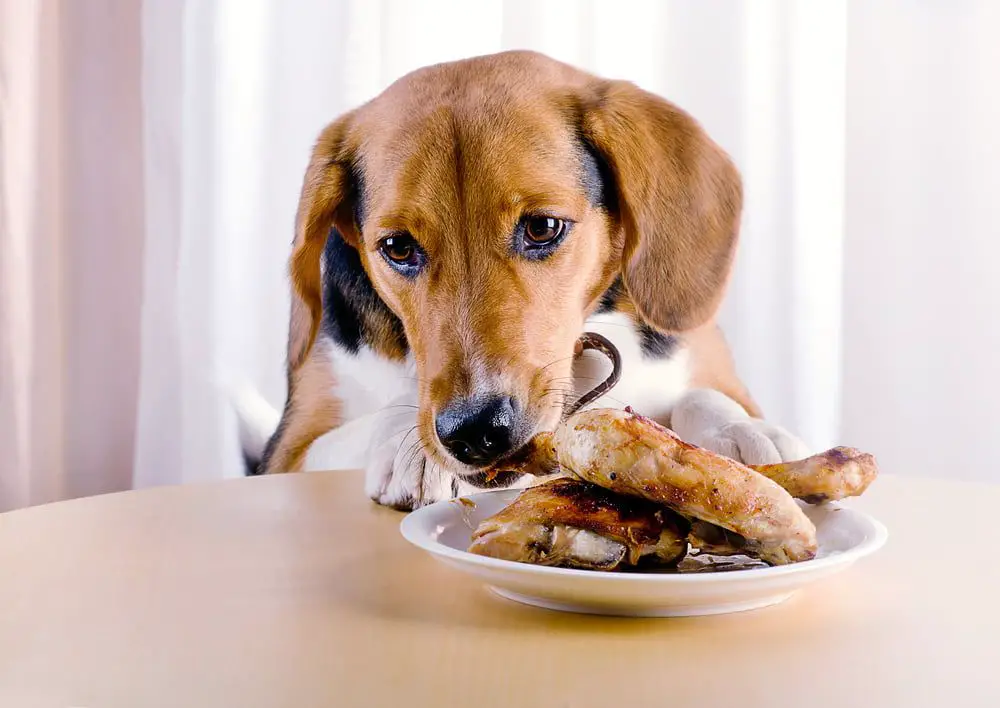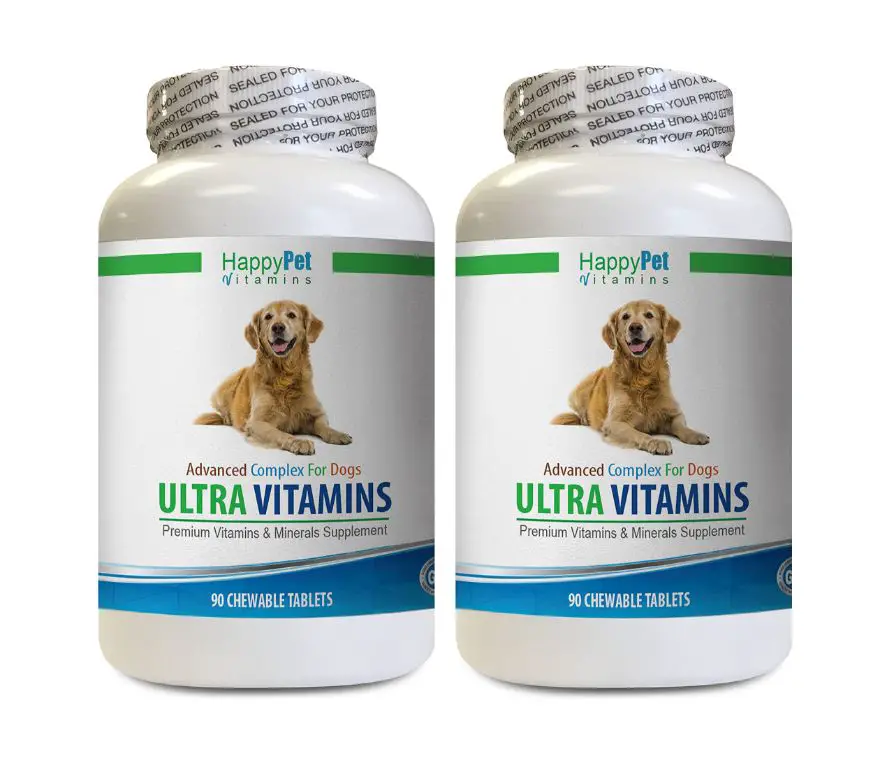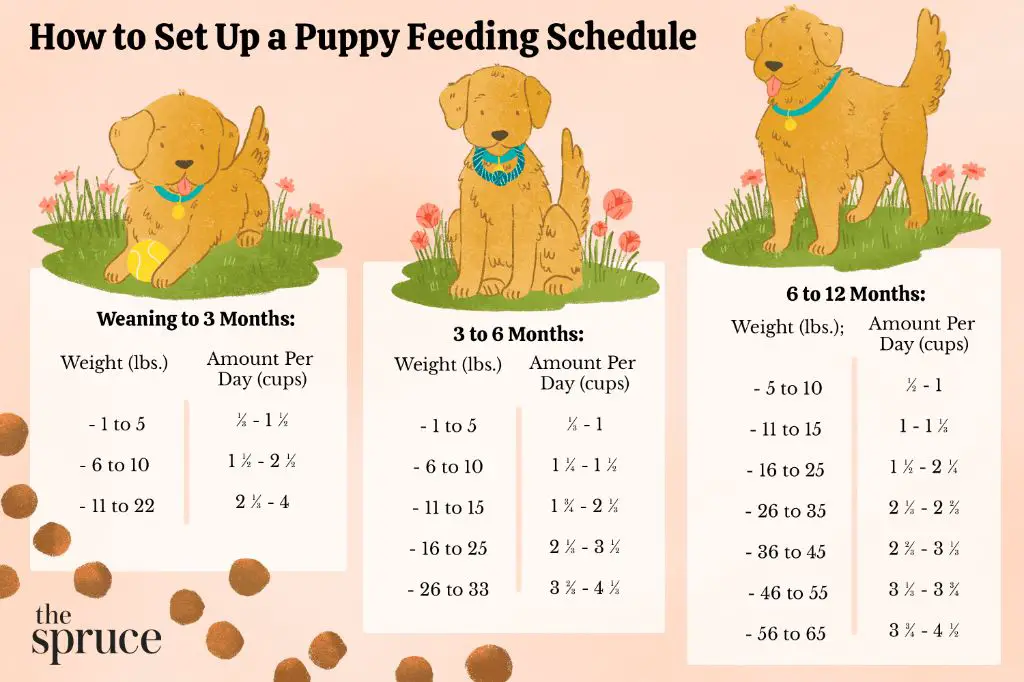Is Chicken Nutritious for Dogs?
Chicken can be a healthy source of nutrition for dogs. Here are some of the key nutrients that make chicken a good choice:
Protein: Chicken is a great source of high-quality protein, which provides amino acids dogs need. Protein supports strong muscles and is vital for growth and development. boneless, skinless chicken breast is about 31% protein.
Fat: Chicken contains heart-healthy fats that provide concentrated energy. The fat content will vary depending on whether you feed chicken breast, thighs, or skin-on cuts. Dark chicken meat with skin contains the most fat – about 5-10% fat.
Micronutrients: Chicken contains lots of vitamins and minerals dogs need in small amounts. This includes B vitamins like niacin, vitamins A, E, and K, phosphorus, selenium, choline and more. These support metabolism, immunity, blood health, vision, skin health, and other functions.
Potential Benefits of Feeding Dogs Chicken

Chicken can provide some potential health benefits when fed to dogs in moderation as part of a balanced diet. Here are some of the main advantages of feeding chicken to dogs:
Lean Source of Protein
Chicken is an excellent source of lean, low-fat protein which is essential for dogs. The high protein content will help maintain and repair muscles as well as provide energy. Chicken is a particularly good protein choice for senior dogs or dogs needing to lose weight since it is lower in fat than other meat options.
Natural Source of Glucosamine
Chicken contains decent levels of glucosamine, which is a natural substance found in cartilage and connective tissues. Glucosamine can help stimulate the production of new cartilage in dogs’ joints and keep joints lubricated and flexible. This makes chicken a great choice for dogs suffering from arthritis or joint problems.
Contains Important Amino Acids
Chicken provides all of the essential amino acids dogs need from their diet. Amino acids are the building blocks used to make muscles, organs, enzymes, hormones and neurotransmitters. Feeding chicken will ensure your dog gets high-quality protein containing the full spectrum of amino acids required for good health.
<h2>Potential Risks of Feeding Only Chicken</h2>
<p>While chicken can be a healthy part of a balanced canine diet, there are some potential risks to only feeding a dog chicken without any other foods. Some key nutrients dogs need that chicken alone does not provide adequate amounts of include:</p>
<p><strong>Lack of Vitamins</strong> – Chicken does contain some vitamins, but not all the essential vitamins dogs require. Vitamins like vitamin E, vitamin D, and some B vitamins may be deficient in an all-chicken diet. Lack of these important vitamins can cause problems like skin disease, joint issues, vision issues, and nerve damage in dogs if the deficiencies are severe enough.</p>
<p><strong>Lack of Minerals</strong> – Chicken is lacking in certain minerals dogs need like calcium, iron, magnesium, zinc, copper, and others. Without balanced mineral intake, dogs may face risks like anemia, bone disease, thyroid problems, muscle weakness, impaired immune function, and more.</p>
<p><strong>Lack of Essential Fatty Acids</strong> – Chicken fat contains some linoleic acid, an omega-6 fatty acid dogs require. However, chicken fat is very low in omega-3s like EPA and DHA that are also essential for dogs’ health. Imbalanced fatty acids can lead to poor coat condition, allergies, inflammation, cognitive issues, and cardiovascular disease.</p>
Other Key Nutrients Dogs Need
While chicken can provide protein and some essential vitamins and minerals, there are other key nutrients dogs need in their diet for optimal health:
Calcium
Calcium is crucial for healthy bones and teeth. Chicken bones are soft and flexible compared to other bones and can splinter easily, making them risky for dogs to chew on. Dogs on an exclusive diet of chicken would likely become deficient in calcium over time.
Phosphorus
Phosphorus works with calcium to build strong bones and teeth. Meat contains more phosphorus than calcium, so an all-chicken diet could lead to an imbalance between these two minerals.
Vitamin D
Vitamin D helps dogs absorb calcium and phosphorus. While chicken liver is high in vitamin D, chicken meat and bones don’t provide much. Dogs fed only chicken could become vitamin D deficient.
Omega-3 Fatty Acids
Omega-3s support skin, coat, joint, heart, and brain health in dogs. Chicken fat contains some omega-3s, but likely not enough to meet a dog’s needs. Feeding chicken exclusively could lead to omega-3 deficiency over time.
Portion Size Recommendations for Chicken
The portion size recommendations for feeding chicken to dogs depends largely on the size and activity level of your dog. Small dogs typically need smaller portions of chicken compared to larger, more active breeds. As a general guideline, the daily portion of chicken should be 10-15% of your dog’s overall calorie needs.
Chicken alone does not provide complete and balanced nutrition for dogs. It’s important to balance chicken with other nutrient-rich foods like vegetables, grains, fruits, and healthy oils. Chicken can make up 50% or less of your dog’s total daily food intake.
It’s best to consult with your veterinarian before switching your dog to a chicken-based diet. They can provide portion recommendations tailored to your individual dog based on their health, breed, age, and activity level. Following your vet’s suggested portions can help prevent nutrient deficiencies and weight issues when feeding a limited ingredient diet.
Tips for Preparing Chicken for Dogs
Chicken can be a healthy part of a balanced home-cooked diet for dogs, but it’s important to prepare it properly:
Cook thoroughly – Chicken needs to be cooked all the way through to kill any bacteria like salmonella. Make sure there’s no pink left inside when you cut into it. The internal temperature should reach 165°F.
Remove skin and bones – A dog’s digestive system can’t break down bones properly, and bones can splinter and cause injuries or obstructions. The skin can also be difficult to digest and is high in fat. Take off the skin and bones before feeding chicken to dogs.
Plain with no seasoning – Don’t add any oil, salt, pepper, onions, garlic or other seasonings when preparing chicken for your dog. These seasonings can be harmful to their health. Plain boiled or baked chicken breast is the safest option.
Signs of Nutrient Deficiencies in Dogs
Feeding dogs a diet composed solely of chicken can lead to potential nutrient deficiencies over time. Some signs that your dog may not be getting adequate nutrition from an all-chicken diet include:
Dull coat – Dogs fed a balanced diet should have shiny, soft, and healthy looking coats. A diet deficient in fatty acids, vitamins, and minerals can cause a dog’s coat to appear dull and brittle.
Fatigue – A lack of important nutrients like iron, B vitamins, amino acids, and healthy fats can leave dogs feeling tired and sluggish. They may seem to have less energy and not be as active.
Poor wound healing – Nutrients like vitamin C, zinc, and protein are important for a dog’s immune system and ability to recover from injuries. Deficiencies can slow down wound healing and make dogs more prone to infections.
Supplements to Balance a Chicken Diet
While chicken can provide protein and some vitamins/minerals for dogs, there are certain key nutrients it lacks or only contains in small amounts. Adding supplements can help create a more balanced homemade chicken diet. Here are some important supplements to consider:

Multivitamin – Chicken does not provide all the essential vitamins dogs need. A daily multivitamin provides a safety net to prevent vitamin deficiencies over time.
Fish Oil – Chicken contains only small amounts of omega-3 fatty acids. Fish oil is a good source of omega-3s, which provide anti-inflammatory benefits and support skin/coat health.
Bone Meal – Feeding only chicken meat lacks sufficient calcium for bone health. Bone meal supplements provide a bioavailable calcium source.
Vegetable Mix – While dogs don’t strictly need plant foods, adding a balance of vegetables can provide antioxidants, phytochemicals, and fiber. Look for a supplement with a variety of veggies.
Consult your veterinarian for dosage recommendations based on your dog’s size and needs. With smart supplementation, it’s possible to formulate a nutritionally balanced chicken-based diet.
Example Chicken Diet Plan for Dogs

Here is a sample one week meal plan for a medium-sized dog (about 30 lbs) fed a diet of primarily chicken, balanced with other foods to provide complete nutrition:
Monday
- Breakfast: 1/2 cup cooked chicken breast, 1/4 cup cooked brown rice, 1 tbsp cooked carrots
- Dinner: 1/2 cup cooked chicken thigh (with bone), 2 tbsp plain yogurt
Tuesday
- Breakfast: 1/2 cup cooked chicken liver, 1/4 cup cooked sweet potato, 1 tbsp olive oil
- Dinner: 1 chicken drumstick, 1/4 cup cooked quinoa, 1/4 cup chopped spinach
Wednesday
- Breakfast: 1 egg scrambled with 1 oz chicken breast, 2 strips cooked bacon, 1/4 cup cottage cheese
- Dinner: 1 chicken wing, 1/4 cup cooked lentils, 1 tbsp chopped parsley
Thursday
- Breakfast: 1/2 cup shredded chicken, 1/4 cup Greek yogurt, 2 tbsp oats
- Dinner: 1 chicken thigh, 1 oz shredded mozzarella, 1/4 cup green beans
Friday
- Breakfast: 1/2 chicken breast, 2 scrambles eggs, 1 tbsp peanut butter
- Dinner: 1 chicken leg quarter, 1/4 cup black beans, 1 tbsp pumpkin puree
Saturday
- Breakfast: Chicken and veggie omelette made with 1 oz chicken, 1 egg, spinach, peppers
- Dinner: Chicken stew made with 1 thigh, carrots, peas, brown rice
Sunday
- Breakfast: Chicken apple sausage, 1/4 cup blueberries, 2 tbsp cottage cheese
- Dinner: Chicken meatballs over pasta with marinara sauce and Parmesan cheese
This meal plan balances the chicken with other nutritious foods like vegetables, grains, legumes, eggs, yogurt, oils, and fruits to provide a nutritionally complete diet.
Consulting a Vet About Diet Changes
Before switching your dog to a chicken-based diet, it’s important to consult your veterinarian. While some dogs may thrive on a chicken-heavy diet, others may require additional nutrients or have specific health conditions that require specialized meals. Your vet can provide individual advice tailored to your dog’s unique needs.
Your vet can monitor your dog for any positive or negative health impacts after transitioning to a chicken diet. Bloodwork and physical exams can help identify signs of improvement or deficiencies. Your vet may suggest supplements or adjustments to balance the diet. For example, they may recommend adding omega fatty acids, vitamins, or minerals through foods like fish, eggs, or leafy greens.
Since every dog is different, it’s important to continually monitor your dog’s health and energy on a new diet under your vet’s supervision. An individualized approach helps ensure your dog’s nutritional needs are met. With your vet’s guidance, you can adjust a chicken-based diet as needed to optimize your dog’s health.